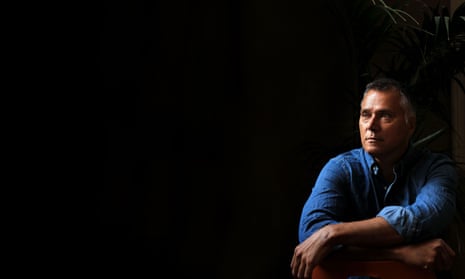My father says language tells us not just who we are but where we are.
He is a wise man, it is wisdom that comes from the certainty of being. He is a Wiradjuri man: born and raised on his country, the country on which he lives still.
I have never known my father to have a crisis of identity. To him, being Wiradjuri is as natural as breathing.
My father has language that speaks to his sense of place. The birds, the rocks, the trees, the hills and the waters have names that echo through millennia. To hear these words fall from his tongue is to know who he is and where he is.
Balladhu Wiradjuri gibir. Dyirramadalinya badhu Wiradjuri. I am a Wiradjuri man. I am proud to be Wiradjuri.
My father can speak those words with unflinching belief. There is no dissonance between word and man and place. In a country of many tongues that speak of other lands, who can say this? I am who I am and I am from here.
It is a certainty I don’t quite possess; I don’t seek to possess. My life has been lived in the worlds in between.
If language tells us not who we are but where we are, then who am I? Where am I when my language is English?
I have made my life, my career, out of a love of the English language. I have had a lifelong passion for words and books. I love the rhythm and the musical quality of a beautifully constructed sentence.
This is the language of Shakespeare. Who could not find the divine in the bards sonnets?
If I could write the beauty of your eyes,
And in fresh numbers number all your graces,
The age to come would say ‘This poet lies;
Such heavenly touches ne’er touched earthly faces.’
This is the language that sets loose the imagination of Bob Dylan.
They’re selling postcards of the hanging, they’re painting the passports brown.
The beauty parlour is filled with sailors, the circus is in town.
Dickens, Hemingway, Twain, these were the companions of my childhood.
Later came James Baldwin, an African American writer who set my mind and soul ablaze.
My travels have opened up a world of languages and the people who speak them. My closest friend overseas was an Iranian cameraman steeped in Persian poetry.
My Pakistani friends introduced me to the music of Nusrat Fateh Ali Khan. I had no need of interpretation to feel the power of his words.
I have the same feeling listening to the Tuareg rock band Tinariwen.
Other languages have words that speak with a force that eludes their English equivalent.
The Arabic word for justice – adl – means to put things in order, to return to their rightful place. That has always felt more profound to me than our western ideas of fairness, equity or objectivity.
I love how dissident Chinese – their thoughts and words – monitored and censored by the Communist party, play with language and exploit ambiguous meaning.
The underground rock band Car Sick Cars have a song called Zhongnanhai – at once the name of the official residence and headquarters of the party leadership and a brand of cigarettes.
Being exposed to new languages, meeting different people, understanding how they see and express their world and the world around them has enriched me. These friendships have made me a better person.
I can speak some Chinese, some Arabic and some French. I will spend my lifetime struggling and failing to master English.
But Wiradjuri – the language of my people – was never a big part of my life. As a boy it wasn’t spoken, the old people kept their silence. We fashioned a patois – a creole mix of Wiradjuri and English.
We had words for white people and police and food and animals; it was a language apart, it belonged to us, likely incomprehensible to others.
But it wasn’t Wiradjuri. It was a language like us – people clinging to often shattered traditions, part of an old world and not yet finding a place in the new.
Language tells us not just who we are but where we are.
This Australia had supplanted us. Our languages fell silent as surely as our people were forced from our lands and herded onto reserves and missions, our lives controlled.
My father’s grandfather was arrested and locked up after police overhead him speaking Wiradjuri to his grandson in the main street of town.
Now my father has kept faith with his grandfather. The old man’s language is spoken again. My father is teaching Wiradjuri to a new generation.
To some Indigenous people recovering language is like recovering self. They see it not just as reasserting their blackness but rejecting whiteness.
Some reclaim or create “traditional” names, reaching back to an ancestral past that feels more authentic than the names of the colonisers they were born with.
Here is the struggle for identity of a people whose identities have been defined – indeed legislated – by others with often devastating personal cost. Just who is and what is Aboriginal remains contested.
Language and names are markers of identity. This is how we introduce ourselves to the world; how we explain ourselves to each other. I admire this conscious effort to keep themselves and their people alive in the world, but I am wary too.
I am who I am and I am born of a country whose history is what it is. My struggle is to live free to determine my identity unconstrained by the expectations or definitions of others.
Reviving Indigenous languages is in itself a response to a history of oppression and denial. It can be liberating and assertive but like all identity it is a construction.
Identity – to me – is not a singular thing.
The economist and philosopher Amartya Sen has warned of what he calls a solitarist identity: “Our humanity gets savagely challenged when the divisions of the world are unified into one allegedly dominant system of classification.”
Sen argues that this makes the world “inflammable”.
Like Sen, I prefer a layered identity; I am the sum of many parts.
Inspired by my father and to honour his legacy and the traditions of our people I have learned more of the Wiradjuri language. I am proud when I see my children – raised in China and the Middle East as much as Australia – finding pride in being Wiradjuri.
Yet English is my first language.
In English I find the words to describe myself. I am a Wiradjuri and Kamilaroi man, an Australian of this country’s first peoples, connected to deep traditions, seeking to live in a fascinating world.
In this world I keep a place for myself, my ancestors and my family. In the words of Shakespeare in Titus Andronicus: “For all the water in the ocean cannot turn the swan’s black legs to white.”

